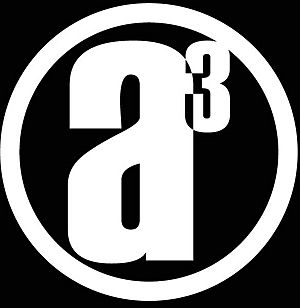Agorism facts for kids
Agorism is a way of thinking about how society should work. It's a political philosophy that believes the best society is one where all interactions between people are voluntary exchanges, like a big free market. This idea was started by Samuel Edward Konkin III.
The word "agorism" comes from the ancient Greek word "agora." An agora was an open space in old Greek cities where people gathered for meetings and, most importantly, for markets to buy and sell things.
Agorists believe there are two main groups of people in society. One group makes a living by trading freely and honestly; they are called the "economic class." The other group makes a living by forcing others to do things or by using rules to control them; this is called the "political class."
Agorists want to see the "economic class" peacefully replace the "political class." They believe this can happen through peaceful activities in what are sometimes called "black market" or "grey market" activities. This approach is known as "counter-economics." It means doing business and trading goods and services outside of government rules, often to avoid taxes or regulations, but always in a nonviolent way.
Contents
What is Agorism?
Agorism is a political philosophy that focuses on creating a society where people interact through voluntary exchanges, much like a giant marketplace. It's a type of Free-Market Anarchism, which means it aims for a society without a central government, where individuals are free to make their own choices and trade with each other without interference. The main goal is to have a world where all relationships are based on free and willing agreements.
Where Does the Name Come From?
The name "Agorism" comes from the ancient Greek word "agora." In ancient Greece, the agora was a central public space in a city. It was a place where people gathered for assemblies, discussions, and especially for markets. It was a bustling hub of activity where people traded goods, shared ideas, and connected with each other. So, the name "Agorism" connects to this idea of a free and open marketplace where people can interact freely.
Who Are the Agorists?
Agorists see people in society as belonging to one of two main groups:
- The Economic Class: These are people who earn their living through voluntary trade and honest work in the market. They create goods and services and exchange them freely with others.
- The Political Class: These are people who get what they want by using force, threats, or by creating rules and laws that control others. They don't rely on voluntary exchange but on power and control.
Agorists believe that the "economic class" should peacefully grow and become stronger, eventually replacing the "political class." They want to see a society where everyone is part of the economic class, meaning all interactions are voluntary and free.
How Do Agorists Achieve Their Goals?
Agorists believe in a peaceful way to change society, not through violence or traditional politics. They support something called counter-economics. This involves engaging in peaceful black market and grey market activities.
- Black Market: This usually refers to trading goods and services that are illegal or heavily regulated by the government.
- Grey Market: This refers to trading goods and services that are legal but done outside of official channels, often to avoid taxes or regulations.
For agorists, these activities are a way to build a free society from the ground up. By trading and doing business outside of government control, they believe they are creating a parallel economy that will eventually make the "political class" less powerful. It's a way of showing that people can organize and trade freely without needing government permission or control. The key is that these activities are always nonviolent and based on voluntary agreements between people.
See Also
 In Spanish: Agorismo para niños
In Spanish: Agorismo para niños
 | Valerie Thomas |
 | Frederick McKinley Jones |
 | George Edward Alcorn Jr. |
 | Thomas Mensah |


